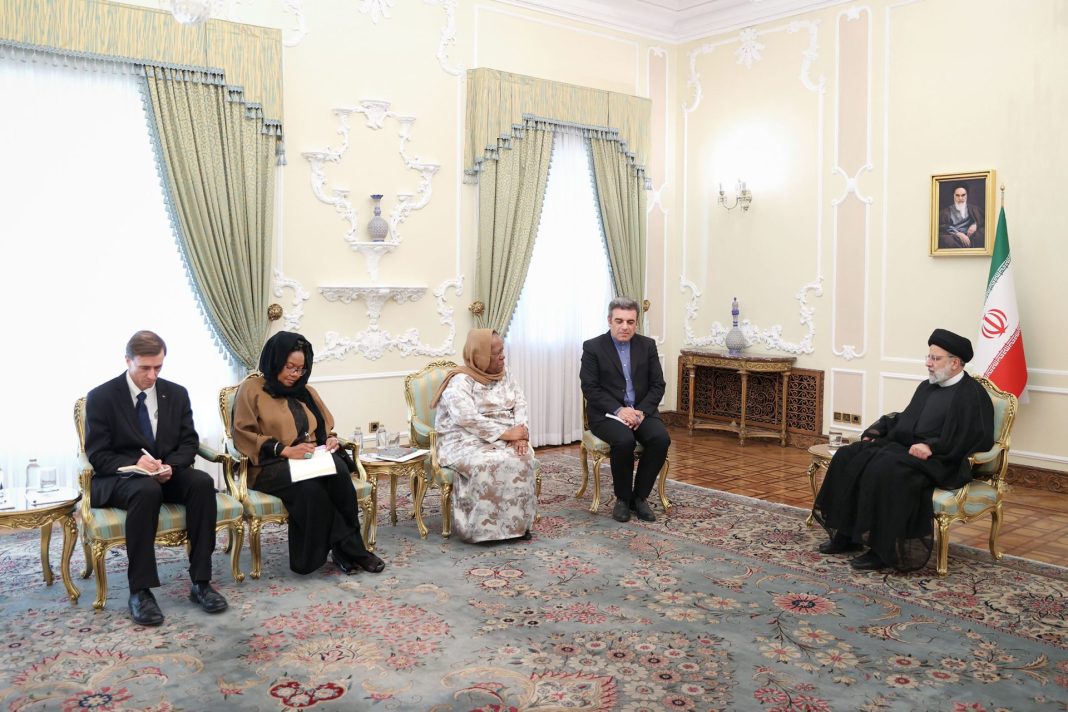Speaking in a meeting with South African International Relations and Cooperation Minister Naledi Pandor in Tehran on Sunday, Raisi said the US is complicit in the crimes of Israel against the defenseless people of Gaza by sending military equipment and weapons to the regime.
He stressed that the United States has also blocked a UN Security Council draft resolution in condemnation of the Israeli atrocities.
“So, there is no longer any hope for this Council to play a role in maintaining global peace.”
He praised support of the South African government and nation for the Palestinian people in their battle against Israel.
Pointing to Israel’s crimes against civilians, especially the Palestinian women and children, the Iranian president hailed the “responsible” stance of South Africa in opposing the Tel Aviv regime being granted observer status at the African Union.
Israel began the war on Gaza on October 7, following Operation Al-Aqsa Storm launched by the Palestinian resistance movement Hamas in response to the regime’s campaign of bloodshed and destruction against Palestinian people.
According to the Palestinian Health Ministry, Israeli strikes on Gaza have so far resulted in the death of over 4,700 Palestinians, including more than 1,800 children, at least 1,000 women, and nearly 200 elderly people. Well over 14,000 people have also been injured since the start of the Israeli aggression.
Pandor, for her part, said Iran’s membership in the BRICS group of emerging economies was the outcome of consensus among the member states.
Iran can play an effective role in developing the BRICS position and promoting collective efforts to achieve progress, the South African minister added.
She noted that South Africa is keen to enhance cooperation, particularly in the economic sector, with Iran.
Addressing the 15th BRICS Summit in Johannesburg in August, South African President Cyril Ramaphosa announced that the member states had agreed to admit Iran, Argentina, Egypt, Ethiopia, the United Arab Emirates and Saudi Arabia as new members from January 1, 2024.
BRICS has gained a special place in Iran’s foreign policy due to its increasing importance in the international political economy and geopolitical developments.
